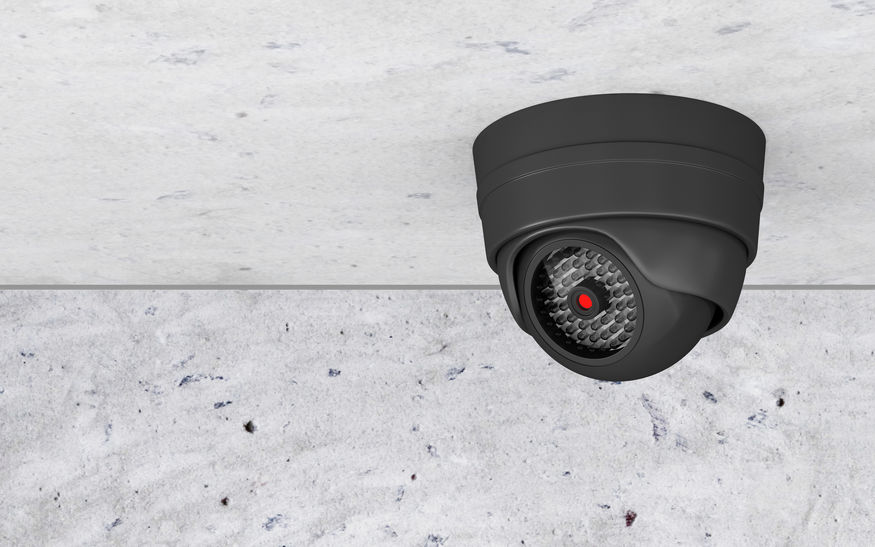
Farmers have been given tips on how to protect their property as animal rights activists increasingly turn to a range of tactics to discredit farming businesses.
As detailed in the controversial Channel 4 documentary ‘How to Steal Pigs and Influence People,’ the world of vegan activism is becoming an increasingly lucrative market.
The documentary provides an insight into the world of vegan ‘influencers’ who can earn hundreds of thousands of pounds through sharing their experiences with online audiences via channels such as YouTube and Instagram.
Rather than off-the-cuff endeavours, these proceedings are revealed to be calculated processes involving marketing plans and publicity campaigns aimed to maximise exposure and drive revenue in an increasingly competitive marketplace.
As a result, more and more outrageous stunts including vigils and mass mobs are organised and content designed to grab viewers’ attention is quickly disseminated across social media to cash in on mass appeal.
Perhaps most worryingly for farmers, is that little rationale appears to exist regarding the basis upon which farms are targeted.
Furthermore, the experience can cause stress to animals while being extremely frightening for staff.
Producers who have been targeted by animal activists, observed suspicious behaviour, or suspect someone has been on-farm are advised to follow standard reporting procedure.
Protect your property
Rebecca Davidson, Rural Insurance Specialist at NFU Mutual, says 'good security is crucial' for protecting farm properties and businesses.
"There are many immediate measures you can take that will ensure you are not an easy target."
Rebecca’s advice includes:
• Ensure your staff are well trained and understand the high standards and practices that you set to avoid a damaging impression of your business.
• Talk to your neighbours and encourage the local community to share any suspicious sightings.
• Join your local FarmWatch or RuralWatch scheme and make use of closed groups to share information.
• Maintain links with the police and ensure you report all crimes and unusual activity however minor, as this can help police piece together intelligence.
• Check your digital footprint, including maps and locations which are publicly available.
• Recruit new staff with care, follow up references and be mindful that protesters could attempt to approach your staff for information.
Cyber Security
In recent years there has been a huge growth in innovation and precision technologies to enhance productivity and security on farm.
However, intruders will often try to overcome. Rebecca says she has had a number of reports of security cameras being tampered with or people trying to access systems when snooping around.
“Computers, farming gadgets and cameras in sheds are especially at risk and could be hacked by activists who could be planning to share footage, disrupt businesses or organise protests," she adds.
"It’s therefore important to ensure systems are both physically and remotely secure.”
Rebecca explains that because many farm businesses are without on-site support from trained cyber resilience experts, they can be vulnerable.

She offers ten top tips on cyber-crime prevention:
• Have up to date anti-virus software in place on all your computer systems
• Run software patch updates as quickly as possible
• Never reveal passwords to others – genuine organisations will never ask for this information
• Update your passwords regularly and replace any default passwords
• Treat phone calls, texts and emails claiming to be to be from bona fide sources with suspicion and respond by calling back using a publicly published number
• Ensure that computer firewalls are switched on
• Only allow trained and trusted staff to have access to business IT systems – and ensure activity is monitored
• If you’re presented with an unusual request, contact the organisation yourself to check their authenticity
• If you outsource your IT don’t assume that they will also be preventing cybercrime – check what their remit covers
• Tightly control who has access to systems and ensure they are trained on how to prevent cybercrime
Rebecca explains that NFU Mutual provides cyber insurance for farmers and commercial businesses.
"The insurance provides support in the event of a data breach with access to industry experts, including IT, forensics, legal, and PR experts, who can help you to react quickly and manage the situation and reputational damage.
"It also covers a range of losses resulting from an attack,” she says.
Personal toil
Despite damage to property and finances being a concern, the personal toil experienced as a result of a farm invasion is harder to reconcile.
It’s impact should not be underestimated, and knowing when and how to interact with the media is vital to minimise damage to well-being and reputation.
Rebecca’s advice includes:
• Remain calm and polite.
• If you feel intimidated or threatened do not approach activists and instead call the police.
• Even though people may be on your private land, you will have responsibilities under occupier’s liability so it is important to handle situations calmly and responsibly and contact the police as soon as possible.
• Do not ever put yours or anyone else’s safety at risk. People on your land may not be aware of the dangers on a working farm. Good barriers, clear signage warning people of risks, and security lighting protect the farm and highlights hazards.
• Be vigilant, report suspicious activity and collate important information which could be used as evidence
• Biosecurity and animal welfare are paramount. If you believe that they may have been compromised by intruders, contact your vet and notify others in the supply chain as appropriate.
• Effective insurance and risk management are vital considerations when protecting your business – speak to your insurer for advice.
